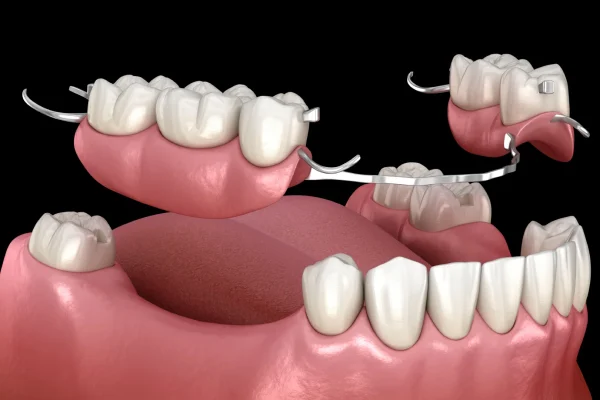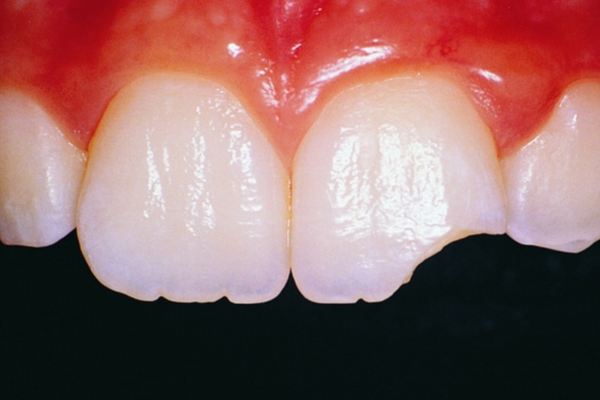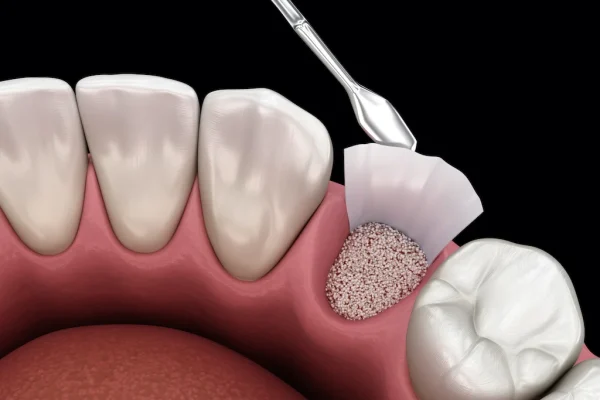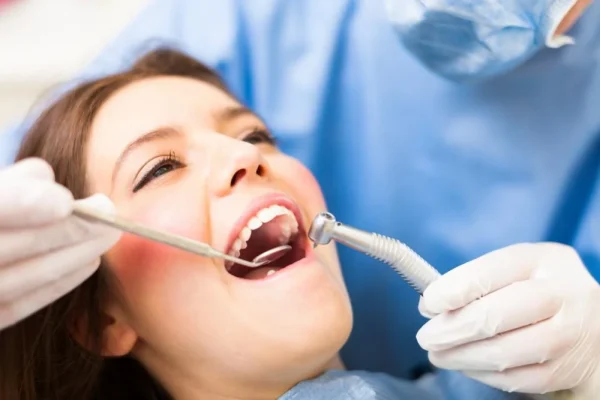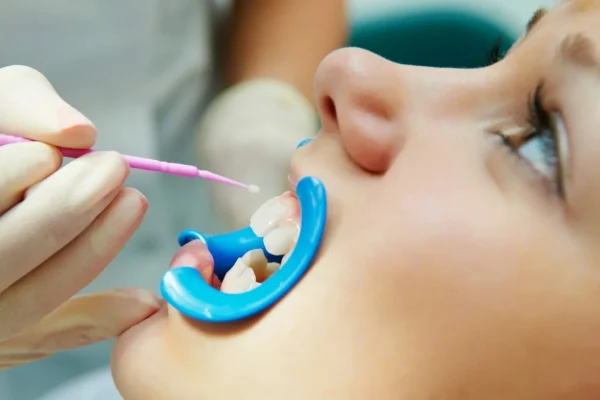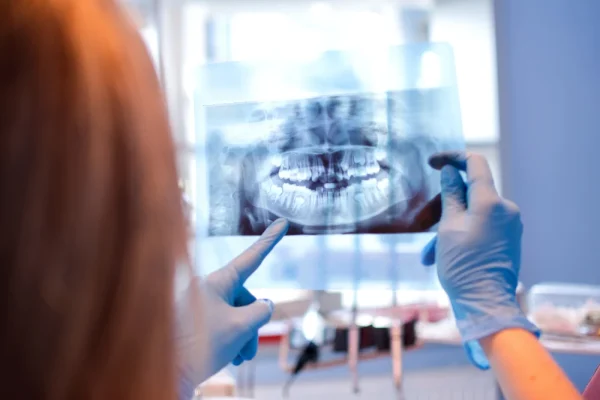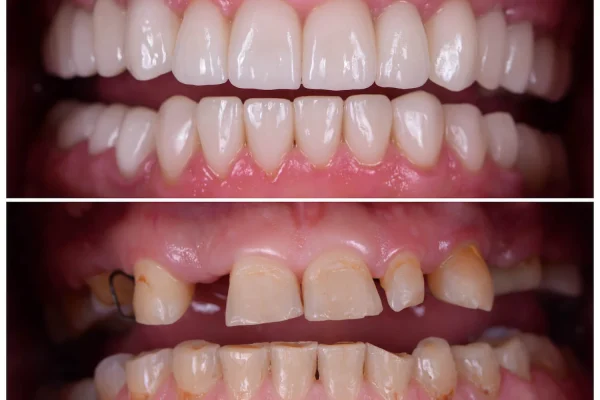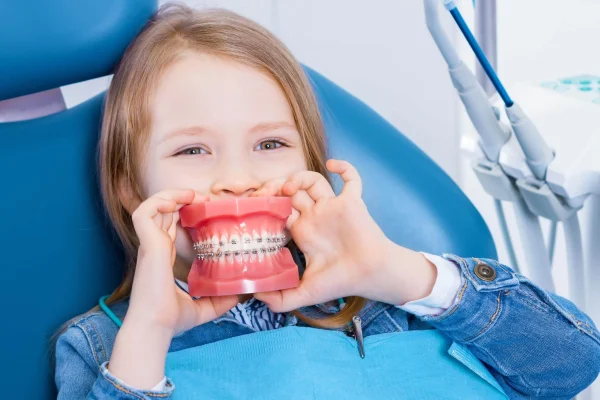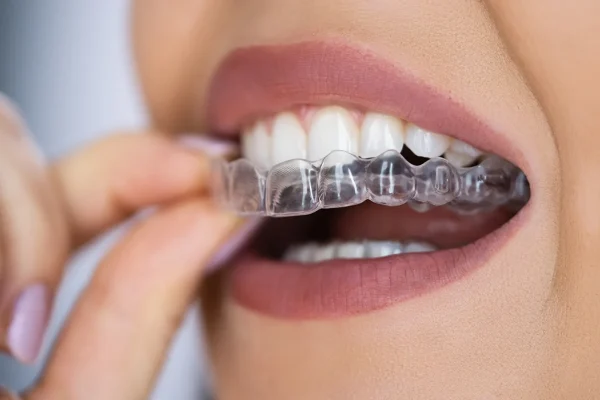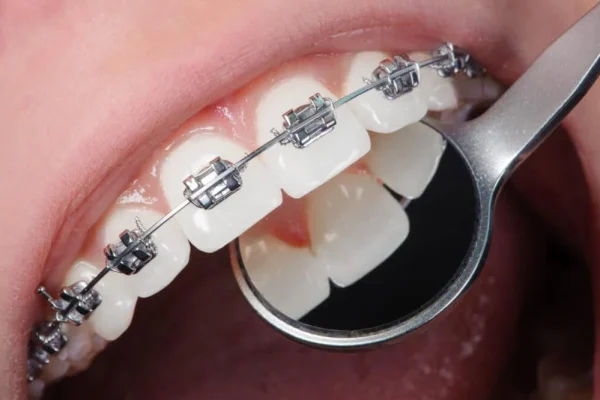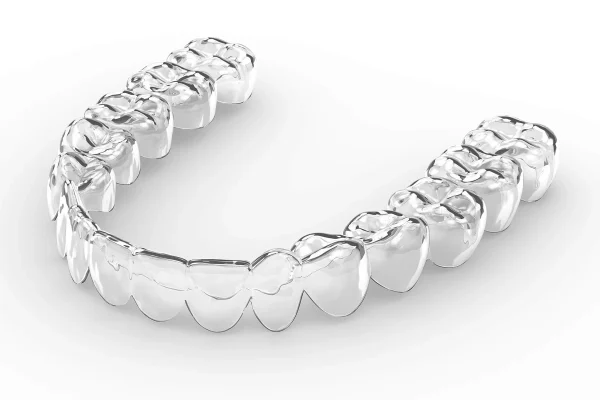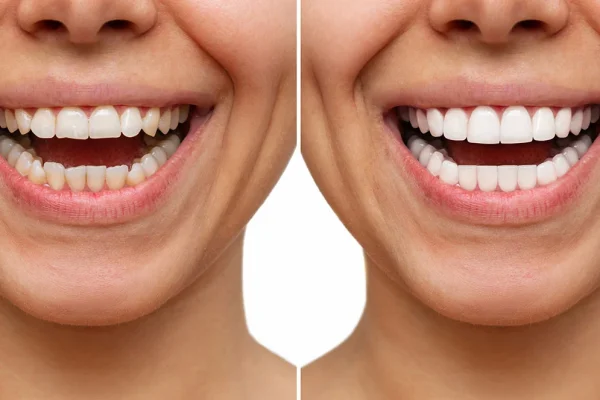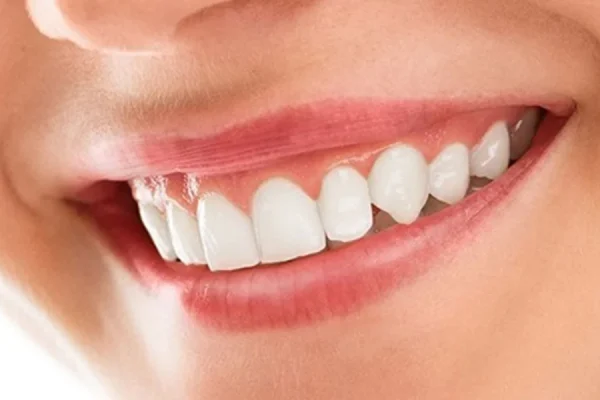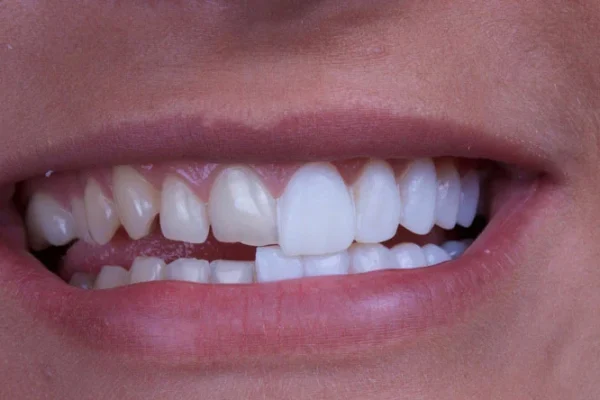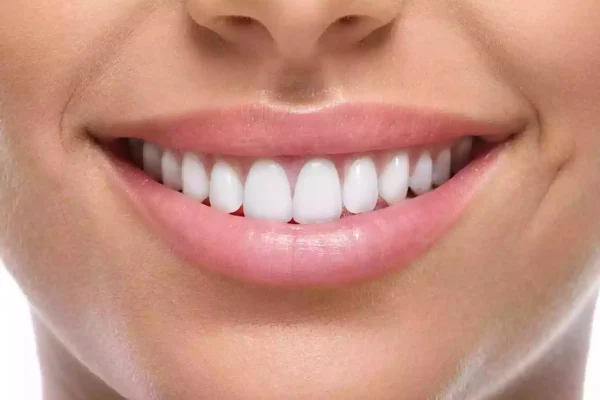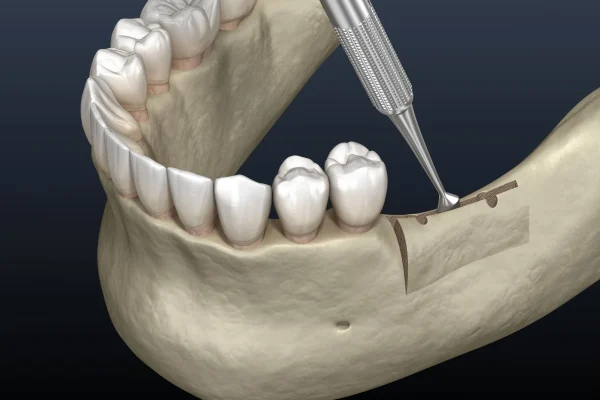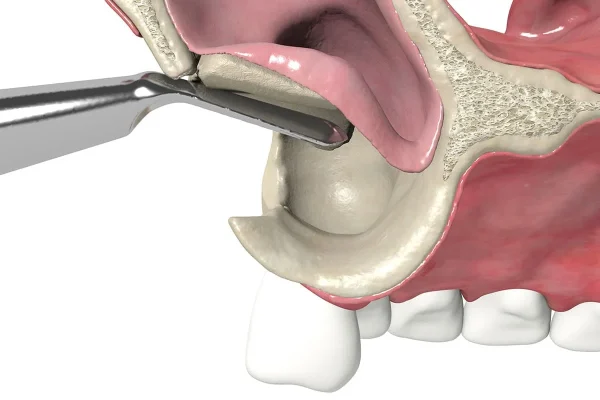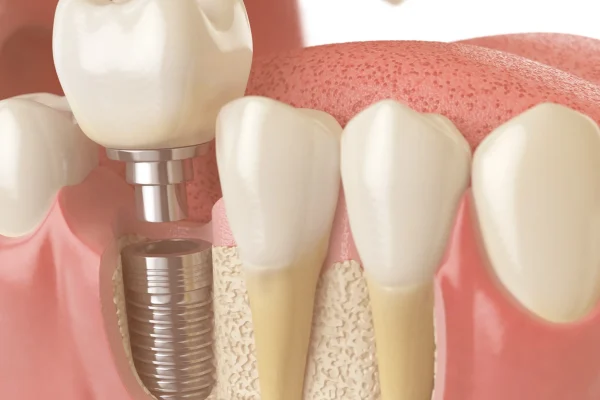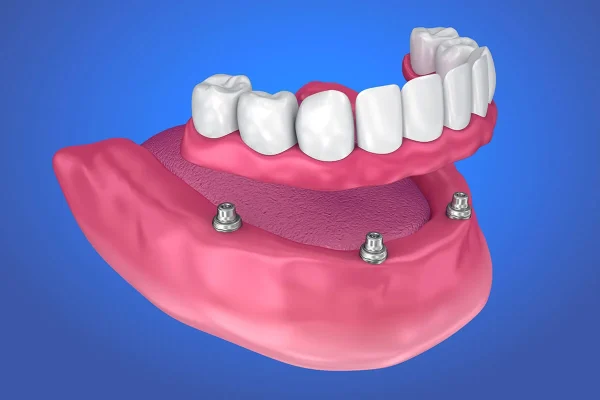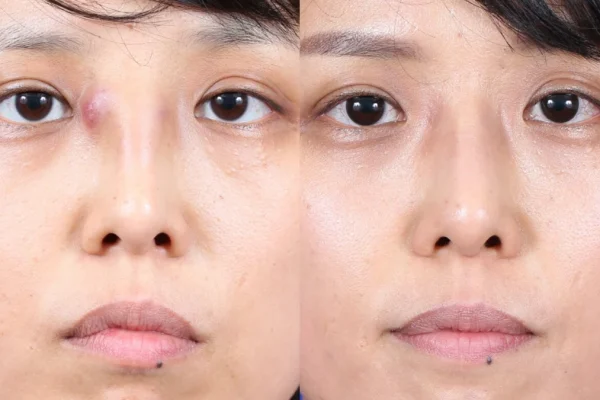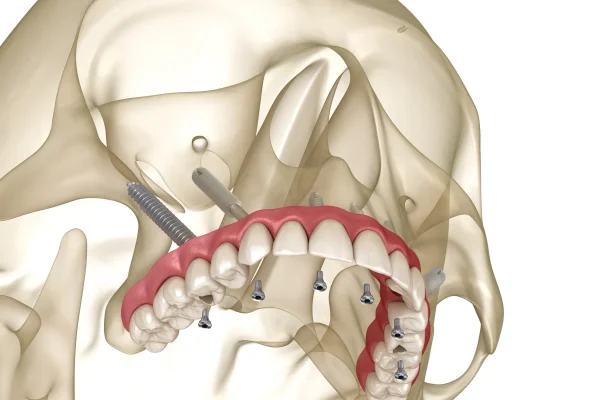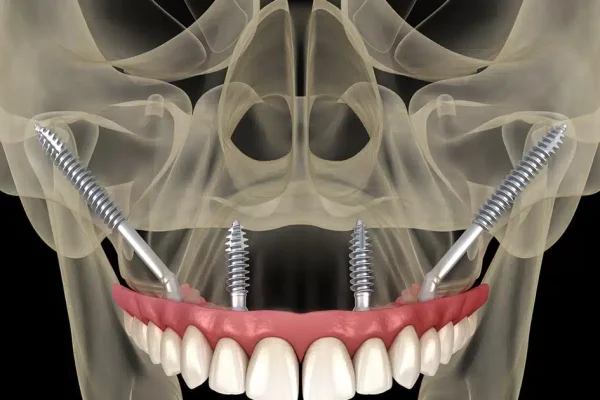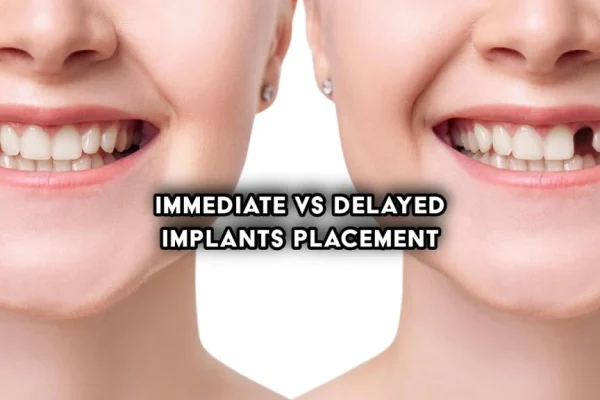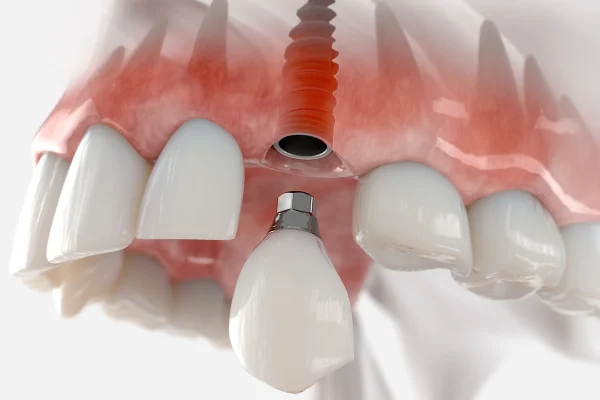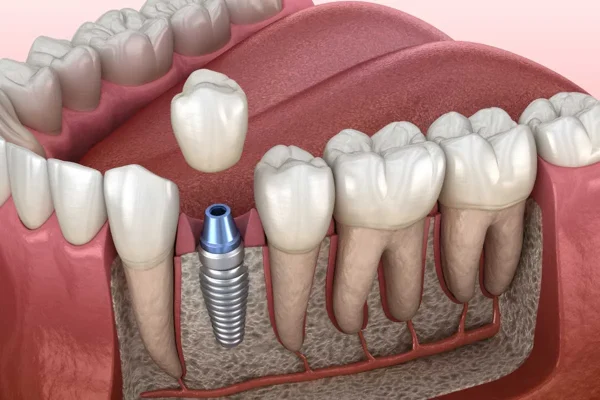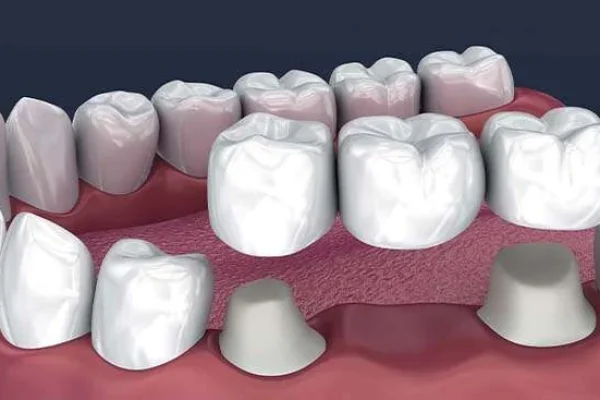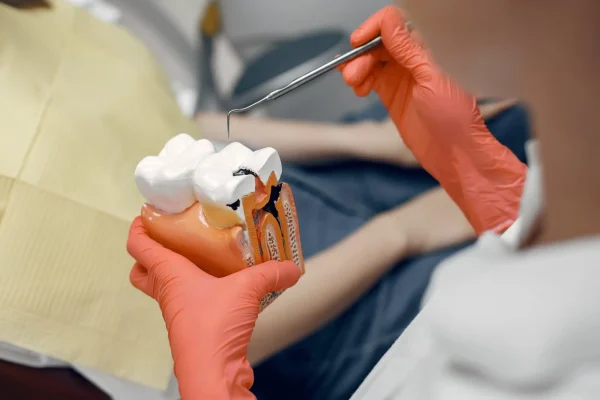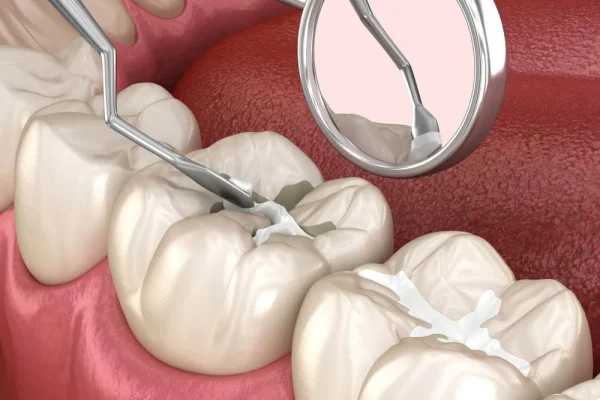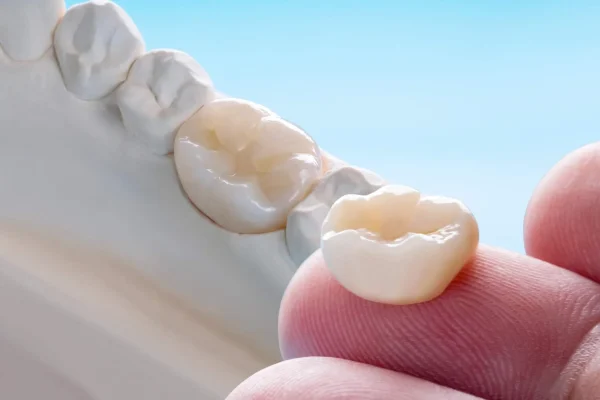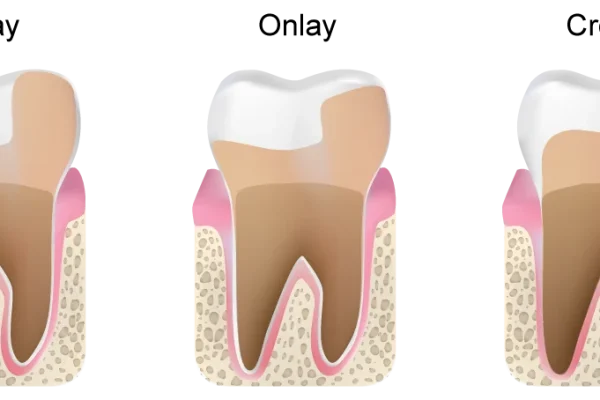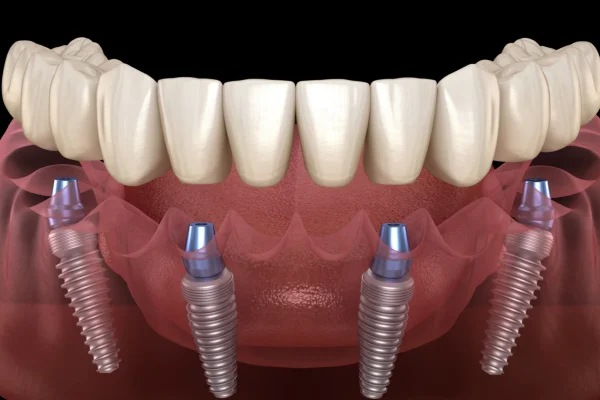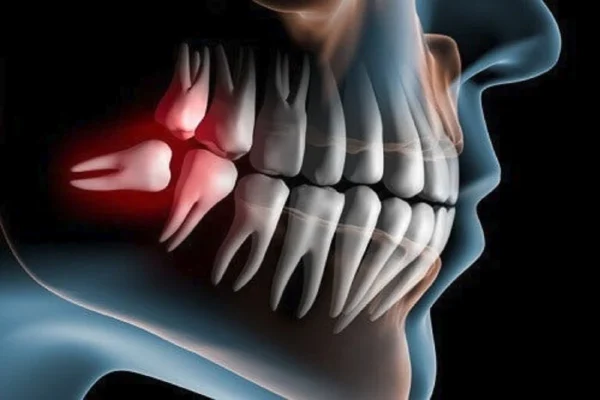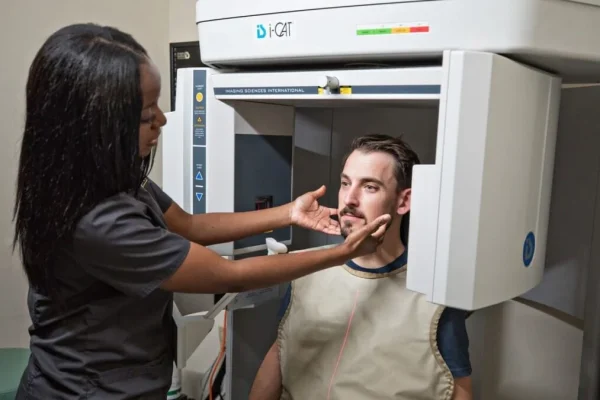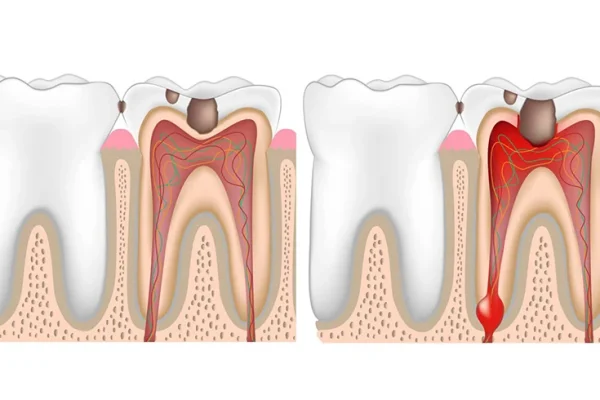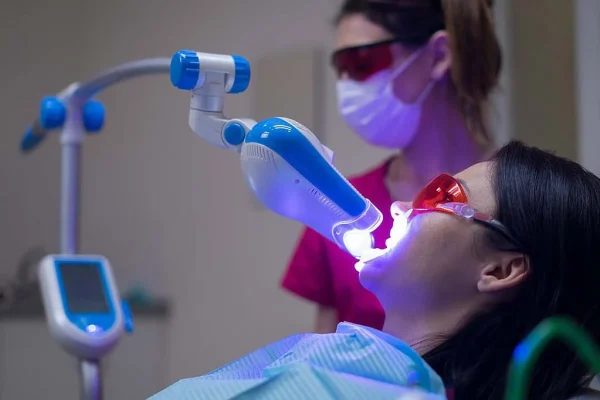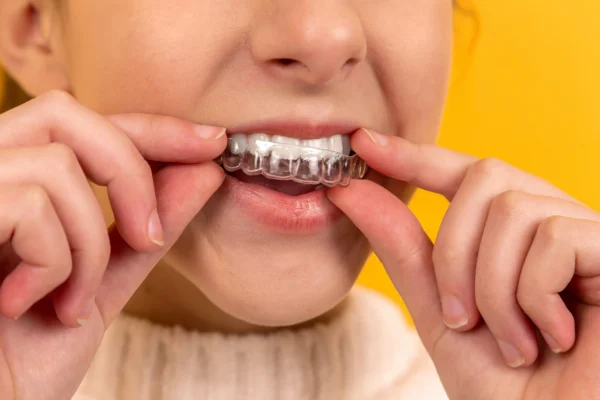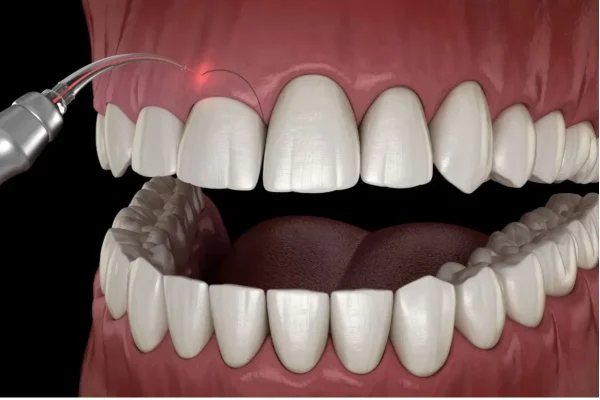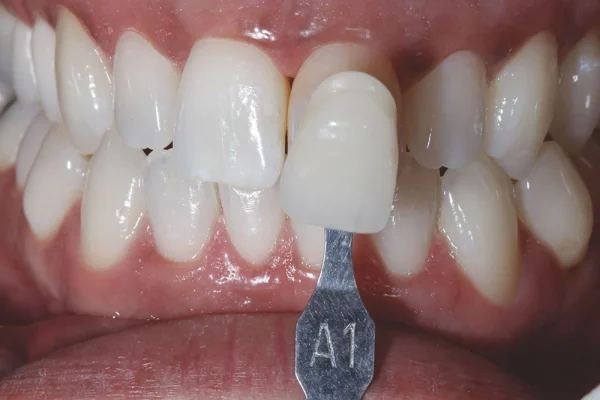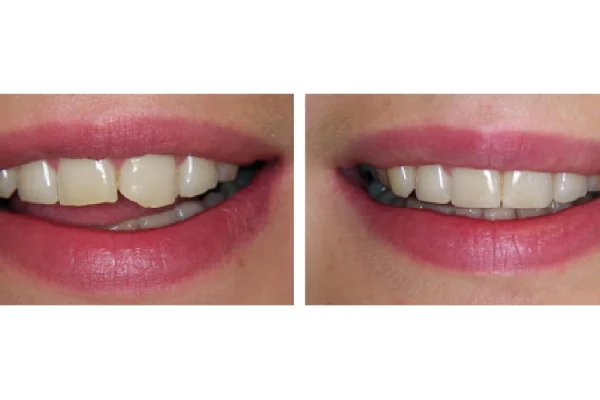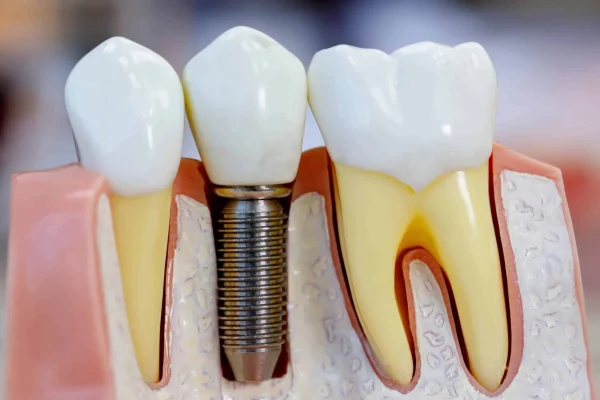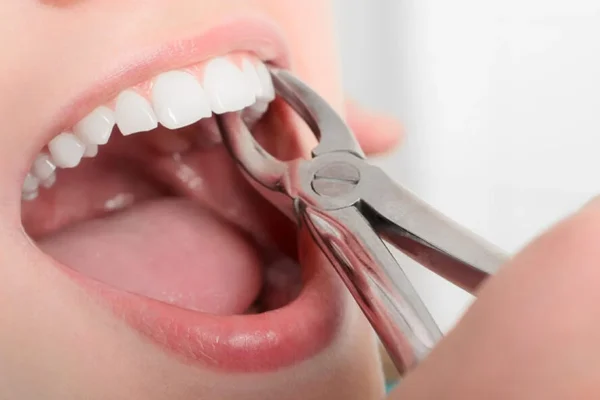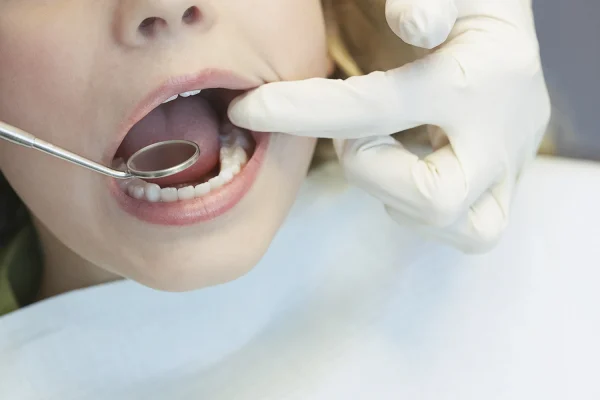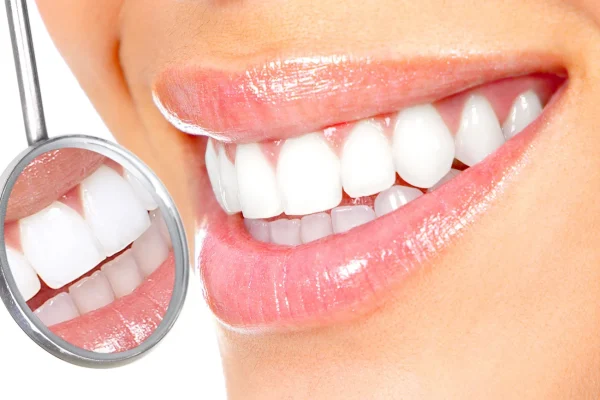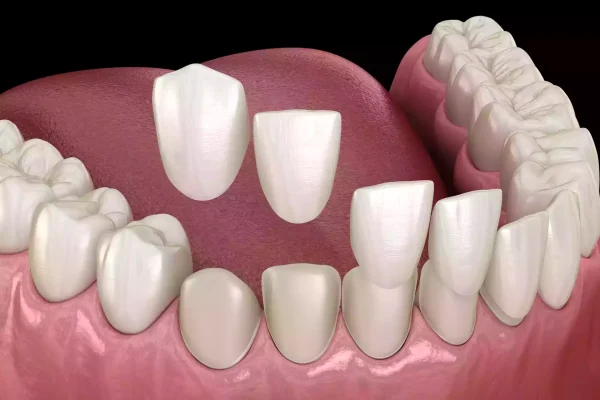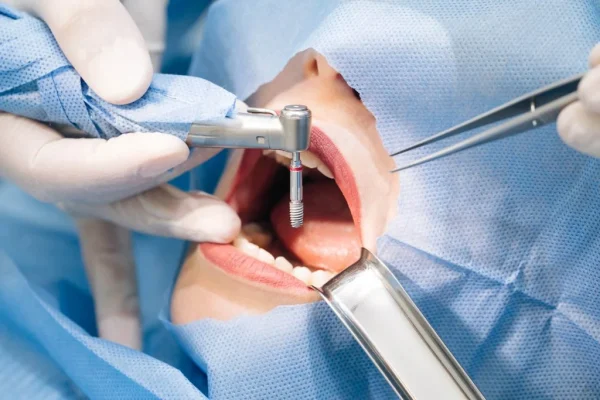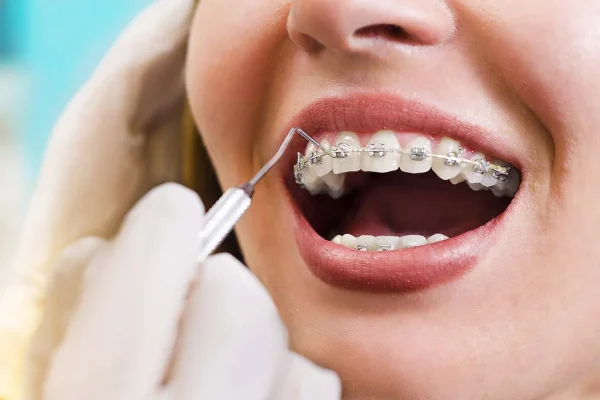What Are All on 6 Dental Implants? A Comprehensive Overview

When considering options for replacing all your teeth, All on 6 dental implants have become increasingly popular as an advanced solution in restorative dentistry. This approach, also known as full mouth dental implants, is designed to permanently replace an entire arch or both arches, giving patients a complete set of stable, natural-looking teeth.
But what exactly are All on 6 dental implants, and how do they differ from other implant techniques?
At its core, the All on 6 method involves strategically placing six titanium dental implants into the jawbone, acting as secure anchors to support a fixed prosthetic dental arch. This approach provides a long-lasting, natural-feeling solution for patients seeking full mouth dental implants. It’s particularly effective for those experiencing extensive tooth loss or those dissatisfied with conventional removable dentures, offering greater stability, improved comfort, and a significant boost in self-esteem.
This implant technique is often referred to by various names such as full mouth implants, whole mouth dental implants, complete dental implants, or even a mouth full of implants. Regardless of the terminology, the goal remains consistent: offering patients complete dental implants solutions that restore both the aesthetics and functionality of their smiles.
Patients typically search for terms like “full dental implants,” “whole set of dental implants,” or even more specifically, “whole set of teeth implants” when considering comprehensive teeth replacement. Whether you call them full jaw dental implants or whole mouth implants, the outcome is a permanent solution to severe tooth loss, drastically improving the patient’s quality of life by enhancing comfort and stability compared to traditional dentures.
If you’re experiencing significant dental issues and find yourself thinking, “I want all my teeth removed and replaced UK,” then the All on 6 implants might be the perfect solution. Unlike conventional removable dentures, full set denture implants or full jaw implants offer unmatched stability, reducing worries about dentures slipping, discomfort during eating, and speech issues. These implants also preserve jawbone density, preventing facial sagging, and helping maintain a youthful appearance.
The treatment, also popularly searched online as full implants or “full teeth replacement,” is gaining recognition in the UK for providing a dependable, aesthetically appealing, and cost-effective solution for those suffering from extensive tooth loss. Clinics in London, Milton Keynes, Camden, Knightsbridge & Kensington, New Cross, and Dorset provide specialized All-on-6 dental implant services, making this advanced dental procedure accessible across various UK locations.
Understanding this procedure thoroughly—including its benefits, costs, and candidacy criteria—can significantly help you decide whether All on 6 dental implants are the ideal solution to restore your smile, confidence, and oral health.
How Does the All on 6 Dental Implant Procedure Work?
The All-on-6 dental implants procedure is a sophisticated yet straightforward method designed for patients who require a full set of dental implants to replace their missing or severely damaged teeth. Understanding how the treatment process works can alleviate any concerns and prepare you adequately for your dental restoration journey.
What Is the Treatment Plan for Getting All-on-6 Dental Implants?
The All-on-6 treatment begins with a detailed consultation to determine your eligibility for whole mouth implants. During this consultation, your dentist performs a comprehensive dental and medical evaluation, assessing your overall health, including conditions like diabetes or hypertension, which could influence implant success. Diagnostic imaging—such as digital X-rays, 3D cone beam CT scans, and panoramic radiographs—will also be conducted to thoroughly analyze your jawbone’s structure and density.
After gathering this information, your dental specialist will create a personalized All-on-6 treatment plan. This will include specifics about the placement of the six implants, their optimal positions in the jawbone, and any preliminary procedures required, such as tooth extractions or bone augmentation. The planning stage ensures precision and predictable outcomes, minimizing the risk of implant failure and optimizing comfort and aesthetic results.
How Are the Implants Placed in the Jaw?
On the day of your surgery, your dentist will begin by administering local anesthesia or sedation to ensure your comfort throughout the procedure. Six titanium implants are carefully placed into the jawbone at strategic angles to maximize stability, evenly distribute bite forces, and avoid vital anatomical structures such as nerves or sinuses.
Immediately following implant placement, a temporary prosthesis or interim denture is attached. This temporary prosthesis enables you to resume normal daily activities while waiting for the final prosthetic teeth. The surgical procedure typically takes between 2 to 4 hours per arch, depending on the complexity of the case.
What Happens During the Healing Process?
Post-implant placement, the healing phase—known as osseointegration—begins. This critical period typically lasts between three to six months, during which the jawbone naturally fuses to the titanium implants, creating a stable and durable foundation. During this phase, your dentist will provide temporary prosthetics to ensure normal function and aesthetics.
Regular follow-up visits will be scheduled to closely monitor your healing progress. Your dentist will assess your implants’ integration with the bone, address any concerns, and ensure you are following appropriate aftercare instructions to facilitate optimal recovery.
When Is the Final Prosthesis Attached?
Once healing is complete, your dentist will take new impressions or digital scans to fabricate your permanent prosthetic teeth. Depending on your individual needs and preferences, this final restoration may consist of a full-arch denture or bridge, custom-designed from materials like porcelain or zirconia for an aesthetically pleasing and natural appearance.
The prosthesis is securely attached to the implants using specialized abutments and titanium screws, ensuring permanent stability and eliminating concerns about denture slippage or discomfort. With proper care, the All-on-6 implants offer long-lasting results and a complete teeth replacement solution, restoring both your confidence and dental functionality.
How Much Do All on 6 Dental Implants Cost in the UK?
The cost of All-on-6 dental implants in the UK varies depending on multiple factors, including the clinic’s location, the dentist’s expertise, and the materials used in the prosthetic restoration. Patients considering this full-mouth teeth replacement solution should be aware of the price range, financing options, and cost comparisons with other implant procedures.
What Is the Average Cost of All-on-6 Dental Implants in the UK?
In the UK, the cost of All-on-6 dental implants typically ranges from £11,000 to £22,000 per arch. If both the upper and lower arches require full mouth implants, the total price can be anywhere between £20,000 and £40,000. This cost includes:
- The initial consultation, diagnosis, and 3D imaging scans.
- Surgical placement of six titanium implants per arch.
- A temporary prosthetic restoration during the healing period.
- The final custom-made prosthetic teeth.
- Post-operative follow-up visits.
Compared to All-on-4 dental implants, which generally cost between £9,000 and £18,000 per arch, All-on-6 implants tend to be slightly more expensive due to the additional two implants providing enhanced stability and load distribution.
What Factors Affect the Cost of All-on-6 Dental Implants?
Several elements influence the cost of All-on-6 implants in the UK, including:
- Clinic Location – Dental clinics in major cities such as London, Manchester, and Birmingham typically charge higher fees than those in smaller towns.
- Dentist’s Experience – Highly specialized implantologists or oral surgeons with years of expertise may have higher fees due to their advanced skillset.
- Materials Used – The type of prosthetic teeth used significantly impacts the cost. Options include acrylic, porcelain, or zirconia bridges, with zirconia being the most durable and aesthetically appealing but also the most expensive.
- Preliminary Treatments – Patients requiring additional procedures like bone grafting, sinus lifts, or tooth extractions will have higher overall treatment costs.
- Technology and Techniques – Clinics utilizing advanced digital planning, guided implant placement, or same-day restorations may charge more for their services.
Are There Financing Options for All-on-6 Dental Implants in the UK?
Given the high cost of full mouth dental implants, many clinics offer flexible financing options to make the treatment more accessible. Some of the available payment plans include:
- 0% APR financing – Many UK dental clinics provide interest-free installment plans that allow patients to spread the cost over 6 to 12 months.
- Long-term financing – Some providers offer extended payment terms of up to 5 years, with monthly payments starting from as low as £78 per month.
- Insurance coverage – While the NHS does not cover cosmetic dental implants, some private dental insurance plans may partially reimburse a portion of the cost.
- Discounts and promotions – Some clinics offer discounts for booking both upper and lower arch implants simultaneously or special seasonal offers.
How Do All-on-6 Dental Implant Costs Compare to Other Tooth Replacement Options?
While All-on-6 dental implants require a higher upfront investment, they provide a long-term, durable solution compared to alternatives such as:
- Traditional Dentures – Cost between £500 and £2,500 per arch but lack stability, require adhesives, and may need frequent replacements.
- All-on-4 Dental Implants – More affordable, but All-on-6 implants offer better long-term stability and support.
- Single Dental Implants – Cost £2,000 to £3,500 per implant, meaning replacing an entire arch with individual implants would be significantly more expensive.
Is the Cost of All-on-6 Implants Worth It?
Although All-on-6 implants are a significant financial investment, they offer exceptional value due to their permanence, durability, and improved quality of life. They eliminate issues associated with dentures, restore natural-looking aesthetics, and prevent jawbone loss, making them a cost-effective solution for full teeth replacement in the long run.
For those seeking a secure, functional, and aesthetically superior alternative to traditional dentures, investing in All-on-6 implants in the UK is often worth the cost.
How Much Do All on 6 Dental Implants Cost in Albania?
Choosing All-on-6 dental implants in Albania offers a cost-effective alternative to the UK or Western Europe without compromising on quality. As one of Europe’s rising dental tourism destinations, Albania provides state-of-the-art dental care at a fraction of the price, thanks to lower labor costs, affordable materials, and a growing network of highly trained implantologists.
What Is the Average Cost of All-on-6 Dental Implants in Albania?
The typical cost of All-on-6 implants in Albania ranges between €3,500 and €5,500 per arch, which means a full-mouth restoration (both arches) may cost between €7,000 and €10,500. This is 50–70% less than the same procedure in the UK, where prices can exceed £20,000 for both jaws.
This pricing generally includes:
-
Six titanium implants per arch
-
Temporary fixed teeth on the same day
-
Final prosthetic bridge (zirconia, porcelain, or acrylic) after healing
-
Consultation and diagnostics (3D CBCT scan)
-
Surgical and post-operative care
-
Follow-up appointments
Additional services like airport pick-up, translation, accommodation, and aftercare support are often bundled in dental tourism packages, especially for international patients.
What Factors Influence the Cost in Albania?
Several elements affect the overall cost of All-on-6 implants in Albania:
-
Materials Used:
-
Acrylic prosthetics are the most affordable.
-
Porcelain and zirconia options increase the cost but offer superior durability and aesthetics.
-
-
Dentist’s Experience & Clinic Reputation:
-
Top-tier clinics in Tirana, Durres, or Vlora with Western-trained dentists may charge slightly more but ensure world-class outcomes.
-
-
Technology & Facilities:
-
Clinics offering in-house digital scans, CAD/CAM design, and same-day prosthetics may command higher fees, but these enhance efficiency and quality.
-
-
Additional Procedures:
-
If bone grafting, sinus lift, or extractions are needed, they may be charged separately.
-
Why Is Albania More Affordable for Dental Implants?
-
Lower operational and labor costs
-
Favorable exchange rates for UK, EU, and US patients
-
Efficient and centralized dental services
-
Government support for medical tourism
Albanian clinics are increasingly popular among patients seeking affordable, high-quality dental solutions, with many dentists trained in Italy, Germany, and the UK. Most clinics also use globally recognized implant systems such as Straumann, Nobel Biocare, or Megagen.
Are Financing and Payment Plans Available in Albania?
While financing options are less common in Albania compared to the UK, some clinics do offer staged payments:
-
50% deposit upon implant placement
-
50% upon final prosthetic placement (after 3–6 months)
-
Some clinics partner with European financing providers for flexible plans (especially for EU citizens)
Final Thoughts on All-on-6 Prices in Albania
Albania offers an unbeatable combination of affordability, quality, and convenience for patients considering full mouth dental implants. With prices starting as low as €3,500 per arch, it’s no surprise that more and more patients from the UK, Italy, and across Europe are choosing Albania for All-on-6 implants. When considering the long-term function, aesthetics, and cost-savings, Albania stands out as one of the top dental tourism destinations in Europe.
All on 4 vs. All on 6 Dental Implants: Which One Is Right for You?
When considering full mouth dental implants, many patients choose between All-on-4 and All-on-6 implants. Both solutions provide a permanent, stable replacement for missing teeth, but key differences can impact which option is best suited for an individual’s needs. Understanding the advantages, differences, and suitability of each procedure is essential before making a decision.
What Are the Key Differences Between All on 4 and All on 6 Implants?
Although both All-on-4 and All-on-6 dental implants serve the same purpose—replacing an entire arch of missing teeth—there are fundamental differences in their structure and functionality:
- Number of Implants:
- All-on-4 uses four implants per arch, whereas All-on-6 uses six implants per arch.
- The two extra implants in All-on-6 provide enhanced stability and durability.
- Load Distribution:
- All-on-6 distributes biting forces more evenly, reducing strain on each implant.
- All-on-4 implants rely on fewer anchors, which may lead to higher stress on each implant over time.
- Suitability for Patients with Bone Loss:
- All-on-4 implants are ideal for patients with low bone density, as they are strategically angled to maximize existing bone.
- All-on-6 implants require more bone density but provide a stronger, longer-lasting foundation.
- Durability and Long-Term Benefits:
- All-on-6 implants tend to be more durable and long-lasting, making them ideal for younger patients or those who require a highly functional restoration.
Which Is More Stable and Durable: All on 4 or All on 6 Implants?
The additional two implants in All-on-6 dental implants provide better stability than the All-on-4 system. This stability helps:
- Reduce the risk of implant failure by evenly distributing pressure.
- Provide stronger support for the prosthetic teeth, making them more resistant to wear and tear.
- Improve jawbone preservation, preventing further bone resorption over time.
Patients who chew hard foods frequently or need long-term durability may benefit from the All-on-6 implant technique.
Who Is a Good Candidate for All on 4 vs. All on 6 Implants?
All-on-4 dental implants are best for:
- Patients with significant bone loss who want to avoid bone grafting.
- Those looking for a more affordable full-arch restoration.
- Older patients or those with lower biting force requirements.
All-on-6 dental implants are ideal for:
- Patients with sufficient jawbone density to support the extra implants.
- Individuals who want increased stability and durability.
- Those who chew harder foods or need a stronger bite force.
Which Is More Cost-Effective: All on 4 or All on 6?
All-on-4 implants generally cost less than All-on-6 implants because fewer implants are used. In the UK, All-on-4 costs between £9,000 and £18,000 per arch, whereas All-on-6 costs between £11,000 and £22,000 per arch.
The cost of All-on-6 dental implants in Albania is significantly lower compared to countries like the UK, US, or other parts of Western Europe, making it a popular destination for dental tourism. On average, here’s what you can expect:
Average Cost of All-on-6 in Albania
-
Per Arch (Upper or Lower):
€3,500 – €5,500 -
Full Mouth (Both Arches):
€7,000 – €10,500
However, All-on-6 provides a more durable and long-term solution, potentially saving money on future repairs or replacements.
Final Verdict: Which Option Should You Choose?
Choosing between All-on-4 and All-on-6 dental implants depends on:
- Budget – If affordability is a priority, All-on-4 is a more budget-friendly option.
- Bone Health – If you have adequate bone density, All-on-6 offers superior stability and durability.
- Long-Term Needs – Younger patients or those with high chewing demands may benefit more from All-on-6.
Both All-on-4 and All-on-6 implants provide life-changing full-mouth restorations, and the right choice depends on individual dental health, financial considerations, and lifestyle needs. Consulting an experienced implant specialist will help determine the best option for achieving a natural, functional, and long-lasting smile.
What Are the Benefits and Risks of All on 6 Dental Implants?

All-on-6 dental implants offer a permanent, stable, and functional solution for individuals who have lost most or all of their teeth. While they provide numerous advantages over traditional dentures and other implant methods, they also come with some risks that patients should consider before undergoing treatment.
What Are the Key Benefits of All on 6 Dental Implants?
The All-on-6 dental implant system provides several life-changing benefits, including:
- Enhanced Stability and Functionality
- The six strategically placed implants provide better support for the prosthetic teeth compared to traditional dentures or All-on-4 implants.
- This extra stability ensures that patients can chew, speak, and smile confidently without worrying about slipping or discomfort.
- More Even Load Distribution
- Since six implants are used instead of four, the biting forces are more evenly distributed, reducing pressure on individual implants.
- This prevents premature wear and tear and increases the longevity of the prosthetic teeth.
- Long-Term Durability
- All-on-6 implants are designed to last for decades with proper care.
- Unlike removable dentures, they do not require frequent adjustments or replacements.
- Improved Jawbone Health
- Dental implants act like natural tooth roots, stimulating the jawbone and preventing bone loss (a common issue with missing teeth).
- This helps maintain facial structure and prevents the sunken appearance often associated with traditional dentures.
- Better Aesthetics and Comfort
- All-on-6 prosthetic teeth look and feel more natural compared to removable dentures.
- They are customized to match the patient’s facial structure, gum line, and natural teeth color, providing a beautiful, youthful smile.
- No Need for Bone Grafting (in Most Cases)
- Many patients who lack sufficient bone density for standard implants can still qualify for All-on-6 without needing bone grafting procedures.
- This makes the treatment faster and less invasive than other full-mouth restoration options.
What Are the Risks and Potential Complications of All on 6 Dental Implants?
While All-on-6 implants have a high success rate, they are not completely risk-free. Some potential risks and complications include:
- Surgical Risks
- Like any surgery, infection, excessive bleeding, and nerve damage are possible.
- Choosing an experienced implant specialist minimizes these risks.
- Healing and Osseointegration Failure
- The implants need time to fuse with the jawbone (osseointegration), a process that can take 3-6 months.
- In some cases, implant failure occurs if the bone does not integrate properly.
- Risk of Implant Failure
- Implant failure can be caused by poor oral hygiene, smoking, diabetes, or excessive pressure on the implants.
- Following post-operative care instructions is crucial to ensure success.
- Temporary Discomfort and Swelling
- After the procedure, patients may experience swelling, bruising, and mild pain for a few days.
- These symptoms typically subside with proper medication and care.
- Possible Need for Additional Procedures
- While bone grafting is often not required, some patients may still need it if they have severe jawbone deterioration.
- This can increase treatment time and costs.
How to Minimize the Risks of All on 6 Dental Implants?
To ensure the success and longevity of All-on-6 implants, patients should:
- Choose a qualified and experienced implant dentist who specializes in full-mouth restorations.
- Maintain good oral hygiene, including daily brushing, flossing, and regular dental check-ups.
- Avoid smoking and excessive alcohol consumption, as they can interfere with healing.
- Follow post-operative care instructions, including dietary recommendations and activity restrictions during the healing phase.
Is All on 6 Dental Implant Treatment Worth the Risks?
For most patients, the benefits of All-on-6 implants far outweigh the risks. This treatment offers a permanent, comfortable, and natural-looking solution for full-mouth tooth replacement, significantly improving quality of life, confidence, and oral health.
By selecting the right dental clinic and following proper aftercare, patients can enjoy the life-changing advantages of All-on-6 implants for decades to come.
What Are the Benefits and Risks of All on 6 Dental Implants?
The All-on-6 dental implant system is a revolutionary approach to full mouth restoration, providing patients with a permanent, stable, and functional set of teeth. Unlike traditional dentures, which can be uncomfortable and unstable, All-on-6 implants offer a fixed, long-term solution that restores both aesthetics and functionality. However, as with any dental procedure, there are both benefits and risks to consider before making a decision.
What Are the Main Benefits of All on 6 Dental Implants?
The All-on-6 technique provides numerous advantages over traditional dentures and other dental implant procedures, including:
- Enhanced Stability and Functionality
- The six strategically placed implants act as a solid foundation for the prosthetic teeth, preventing movement and slippage.
- Patients can eat, speak, and smile with confidence, as the implants mimic the function of natural teeth.
- Even Distribution of Bite Force
- With six implants supporting the prosthetic teeth, the biting pressure is evenly distributed, reducing stress on individual implants and ensuring long-term durability.
- This prevents excessive pressure on the jawbone and surrounding structures, reducing the risk of implant failure.
- Prevention of Bone Loss and Facial Collapse
- Dental implants stimulate the jawbone, preventing bone resorption (bone loss), which often occurs when teeth are missing.
- By maintaining jawbone density, facial structure is preserved, preventing the sunken appearance common in individuals with missing teeth.
- Long-Term Durability
- With proper care, All-on-6 implants can last a lifetime.
- Unlike traditional dentures, which require frequent adjustments and replacements, implant-supported teeth offer a permanent solution.
- No Need for Adhesives or Removability
- Traditional dentures require adhesives to stay in place and need to be removed daily for cleaning.
- All-on-6 implants are permanently fixed, eliminating the hassle of removable dentures.
- Improved Aesthetics and Confidence
- The prosthetic teeth are designed to look natural and match the patient’s facial features, providing a youthful and attractive smile.
- Patients report a significant boost in self-esteem and confidence after the procedure.
What Are the Risks and Potential Complications of All on 6 Dental Implants?
Although All-on-6 implants are considered safe and effective, there are some risks and possible complications that patients should be aware of:
- Surgical Risks
- As with any surgical procedure, there is a risk of infection, bleeding, and swelling.
- Patients should follow post-operative care instructions to minimize complications.
- Osseointegration Failure (Implant Rejection)
- The implants must fuse with the jawbone (a process called osseointegration) for the treatment to be successful.
- If the bone does not integrate properly, implant failure can occur, requiring additional procedures.
- Potential Need for Bone Grafting
- While many patients can receive All-on-6 implants without bone grafting, some individuals with severe jawbone loss may still require this additional procedure.
- Bone grafting increases treatment time and cost.
- Temporary Swelling and Discomfort
- After the procedure, patients may experience swelling, mild pain, and bruising.
- These symptoms usually subside within a few days but can cause temporary discomfort.
- Risk of Implant Overloading
- If patients do not follow proper care guidelines, excessive pressure on the implants can lead to complications.
- A soft diet is recommended during the healing phase to prevent unnecessary strain.
- Lifestyle Factors Affecting Success
- Smoking, poor oral hygiene, and certain medical conditions (e.g., diabetes) can increase the risk of implant failure.
- Patients should maintain good oral hygiene and attend regular dental check-ups to ensure long-term success.
How to Minimize the Risks of All on 6 Dental Implants?
To ensure successful implant placement and longevity, patients should:
- Choose an experienced implant dentist with expertise in full-mouth restorations.
- Follow post-operative instructions, including medication use, diet recommendations, and activity restrictions.
- Maintain excellent oral hygiene, brushing and flossing daily to prevent infections.
- Avoid smoking and alcohol consumption, as they can delay healing and increase the risk of implant failure.
- Attend follow-up visits for implant monitoring and professional cleanings.
Are All on 6 Dental Implants Worth the Risks?
For most patients, the benefits of All-on-6 implants significantly outweigh the risks. This treatment provides a long-lasting, natural-looking, and fully functional solution for complete tooth loss, improving both oral health and quality of life.
By choosing the right dental provider and adhering to proper care guidelines, patients can enjoy the life-changing benefits of All-on-6 implants for decades.
Who Is Eligible for All on 6 Dental Implants?

All-on-6 dental implants offer a permanent and stable solution for individuals who have lost most or all of their teeth. However, not everyone is an ideal candidate for this procedure. Eligibility for All-on-6 implants depends on several oral health, medical, and lifestyle factors. Understanding whether you qualify for this treatment can help you make an informed decision about your full-mouth dental restoration.
What Are the General Requirements for All on 6 Dental Implants?
To be eligible for All-on-6 implants, a patient should meet the following criteria:
- Significant Tooth Loss
- Patients who have lost most or all of their teeth in an arch (upper or lower jaw) can benefit from full-mouth dental implants.
- Individuals with severely damaged or decayed teeth who require extractions are also good candidates.
- Adequate Jawbone Density
- The jawbone must be strong enough to support the six titanium implants.
- If the bone is too weak or resorbed, a bone graft or sinus lift may be required before the procedure.
- Good Overall Oral Health
- Healthy gums and soft tissues are crucial for successful implant placement.
- Patients with severe gum disease (periodontitis) should receive treatment before undergoing implant surgery.
- No Severe Medical Conditions That Interfere with Healing
- Certain health conditions, such as uncontrolled diabetes, autoimmune diseases, or blood clotting disorders, can increase the risk of implant failure.
- Patients should consult their doctor to determine whether they can safely undergo the procedure.
- Commitment to Oral Hygiene and Post-Surgery Care
- Maintaining good oral hygiene is essential for preventing infections and ensuring the longevity of the implants.
- Patients must follow post-operative care instructions, including regular dental check-ups and proper cleaning techniques.
Who Is a High-Risk Candidate for All on 6 Dental Implants?
While most patients can undergo All-on-6 treatment, some individuals may require additional evaluations or treatments before they qualify:
- Patients with Severe Bone Loss
- If a patient has significant jawbone deterioration, they may need a bone graft before getting implants.
- Some clinics offer pterygoid implants, which can bypass the need for grafting in complex cases.
- Smokers and Heavy Alcohol Consumers
- Smoking and excessive alcohol consumption can slow down healing and increase the risk of implant failure.
- Smokers should consider quitting or reducing tobacco use before and after the procedure.
- Individuals with Uncontrolled Medical Conditions
- Patients with poorly controlled diabetes, heart disease, or immune disorders may face complications during healing.
- A thorough medical evaluation and consultation with both the dentist and physician is necessary.
- Bruxism (Teeth Grinding) Patients
- Excessive teeth grinding or clenching can put excess pressure on implants, leading to complications.
- In some cases, patients may need a custom night guard to protect the implants.
What Can Disqualify a Patient from All on 6 Implants?
While rare, some conditions completely disqualify a patient from receiving All-on-6 implants, including:
- Active untreated gum disease that could compromise the success of the implants.
- Severe osteoporosis, which can affect the strength and integration of the implants into the jawbone.
- Allergic reactions to titanium, as implants are made from biocompatible titanium materials.
How Can a Patient Improve Their Eligibility for All on 6 Implants?
Patients who are not immediately eligible for All-on-6 implants can take steps to improve their chances of qualifying:
- Undergo Bone Grafting if Necessary
- If jawbone loss is an issue, bone grafting can rebuild the bone structure, allowing successful implant placement.
- Treat Any Gum Disease Before Surgery
- Addressing periodontal infections before implant placement reduces the risk of complications.
- Quit Smoking and Maintain a Healthy Diet
- Smoking cessation and a nutrient-rich diet support faster healing and better long-term implant success.
- Manage Medical Conditions
- Working with a doctor to stabilize diabetes, heart disease, or other health issues improves eligibility for implant surgery.
Is There an Age Limit for All on 6 Dental Implants?
There is no upper age limit for receiving All-on-6 implants, as long as the patient is in good overall health. However, younger patients should have a fully developed jawbone before undergoing the procedure.
Conclusion: Are You a Good Candidate for All on 6 Implants?
If you have significant tooth loss, good oral health, and sufficient jawbone density, you are likely a great candidate for All-on-6 implants. However, if you have underlying health concerns, smoke, or have extensive bone loss, additional treatments may be necessary to qualify. A consultation with an experienced dental implant specialist will help determine the best approach for your specific case.
What Materials Are Used in All on 6 Dental Implants?
The materials used in All-on-6 dental implants play a crucial role in their durability, strength, and natural appearance. Since these implants are designed to replace an entire arch of missing teeth, they must be made from high-quality, biocompatible materials that ensure long-term success and optimal functionality. Let’s explore the different components and materials that make up All-on-6 dental implants.
What Are All on 6 Implants Made Of?
All-on-6 dental implants consist of three main components, each made from specific materials to ensure stability and longevity:
- Implant Posts (Artificial Roots)
- Made from medical-grade titanium or zirconia.
- Titanium is the most commonly used material due to its high biocompatibility and strength.
- Zirconia implants are an alternative for patients with metal allergies or aesthetic concerns.
- Abutments (Connectors)
- Typically made from titanium or zirconia.
- Serve as the link between the implant post and the prosthetic teeth.
- Designed to be strong and resistant to fractures while ensuring a secure connection.
- Prosthetic Teeth (Restoration)
- Can be made from acrylic, porcelain, or zirconia.
- Porcelain and zirconia offer high durability, stain resistance, and natural aesthetics.
- Acrylic is a more affordable option, but it may require replacement sooner than other materials.
Why Is Titanium the Preferred Material for All on 6 Implants?
Titanium is the gold standard for dental implant posts and abutments due to several key benefits:
- Exceptional Biocompatibility
- Titanium is biocompatible, meaning the body accepts it without causing allergic reactions.
- Encourages osseointegration, where the implant fuses with the jawbone, ensuring stability and long-term success.
- Strength and Durability
- Titanium is lightweight yet incredibly strong, making it ideal for supporting full-arch restorations.
- Resistant to corrosion and wear, ensuring that implants last decades with proper care.
- High Success Rate
- Titanium implants have a 98% success rate, making them the most reliable option for full-mouth dental implants.
What Are Zirconia Implants, and When Are They Used?
Zirconia implants are an alternative to titanium and are becoming increasingly popular for certain patients.
- Metal-Free Option
- Ideal for patients with metal sensitivities or allergies.
- Provides an aesthetic advantage since zirconia is tooth-colored, reducing the risk of a grayish hue under the gums.
- Strength and Durability
- Zirconia is exceptionally strong and fracture-resistant.
- More brittle than titanium, meaning it may not be ideal for all cases.
- Less Plaque Accumulation
- Studies suggest that zirconia may attract less plaque and bacteria compared to titanium, reducing the risk of peri-implantitis (gum infection around implants).
What Materials Are Used for Prosthetic Teeth in All on 6 Implants?
The prosthetic teeth attached to the implants can be made from various materials, each with its own advantages:
- Acrylic (PMMA – Polymethyl Methacrylate)
- A lightweight and affordable option for temporary or permanent restorations.
- Can wear down faster than porcelain or zirconia.
- More prone to staining and damage over time.
- Porcelain
- Offers a highly natural appearance, closely resembling real teeth.
- Resistant to staining and wear, ensuring long-lasting results.
- Slightly more fragile than zirconia but provides excellent aesthetics.
- Zirconia (Monolithic or Layered)
- The most durable and aesthetic option for full-arch restorations.
- Can withstand strong biting forces, making it ideal for patients who clench or grind their teeth.
- Highly resistant to chipping, staining, and wear.
Which Material is Best for All on 6 Dental Implants?
The best material for All-on-6 dental implants depends on individual needs, lifestyle, and budget.
- Titanium implants with zirconia or porcelain restorations are ideal for most patients, offering the best balance of strength, durability, and aesthetics.
- Patients with metal allergies may prefer zirconia implants with full-zirconia prosthetic teeth for a metal-free solution.
- Acrylic teeth on titanium implants may be a cost-effective choice but may require replacement sooner than other materials.
Conclusion: Choosing the Right Material for Your All on 6 Implants
The success and longevity of All-on-6 dental implants largely depend on the materials used. Whether choosing titanium or zirconia implants, or opting for acrylic, porcelain, or zirconia prosthetic teeth, consulting a dental implant specialist will help determine the best option based on your oral health, lifestyle, and preferences. Investing in high-quality materials ensures a long-lasting, natural-looking smile that enhances functionality and confidence.
How to Care for and Maintain All on 6 Dental Implants?

Proper care and maintenance of All-on-6 dental implants are essential to ensuring their longevity, functionality, and aesthetic appeal. While All-on-6 implants are designed to be a long-lasting solution for full mouth teeth replacement, neglecting oral hygiene and follow-up care can lead to complications such as gum disease, peri-implantitis, and implant failure. Below, we outline the best oral hygiene practices, professional maintenance tips, and dietary recommendations to keep your All-on-6 implants in excellent condition.
What Are the Best Daily Oral Hygiene Practices for All on 6 Implants?
Maintaining a proper oral hygiene routine is critical to prevent plaque buildup and infections around your implants. Here’s how to take care of them daily:
- Brush Twice a Day
- Use a soft-bristled toothbrush or an electric toothbrush designed for dental implants.
- Brush gently but thoroughly to remove plaque and food particles around the prosthetic teeth and gum line.
- Use a non-abrasive, low-fluoride toothpaste to avoid scratching the implant surfaces.
- Floss Daily with Specialized Floss or Water Flossers
- Traditional floss may not be suitable for implants, but super floss, interdental brushes, or water flossers can effectively clean around the implant posts and under the bridge.
- Water flossers with an antimicrobial rinse help reduce bacteria and keep the gums healthy.
- Use an Antibacterial Mouthwash
- Choose an alcohol-free mouthwash to avoid irritation and keep bacterial levels under control.
- Rinse twice daily to help prevent gum disease and infections.
How Often Should You Visit the Dentist for All on 6 Implant Maintenance?
Even with good at-home care, professional dental check-ups and cleanings are crucial to prolonging the lifespan of your All-on-6 implants.
- Regular Check-Ups Every 6 Months
- Your dentist will monitor the health of your gums and jawbone, ensuring no signs of implant failure or peri-implantitis.
- Digital X-rays or 3D scans may be taken periodically to check for bone density and implant stability.
- Professional Cleanings with a Dental Hygienist
- Specialized tools are used to remove calculus (hardened plaque) from around the implant posts.
- Ultrasonic scalers designed for implants prevent damage while ensuring deep cleaning.
- Address Any Signs of Infection Immediately
- If you notice red, swollen, or bleeding gums, schedule a dental visit immediately.
- Early intervention can prevent bone loss and implant failure.
What Foods Should Be Avoided After Getting All on 6 Implants?
Although All-on-6 implants provide full chewing functionality, certain foods should be avoided, especially during the healing process.
- Avoid Hard and Crunchy Foods
- Nuts, hard candies, and ice can put excess pressure on the implants, leading to damage or loosening.
- Limit Sticky and Chewy Foods
- Chewing gum, caramel, and toffees can stick to the prosthetic teeth, increasing the risk of bacterial buildup.
- Reduce Acidic and Sugary Foods
- Acidic beverages like soda and citrus juices can irritate the gums and weaken the implant surfaces.
- Excess sugar consumption can contribute to plaque buildup, leading to peri-implantitis.
- Opt for Soft and Nutrient-Rich Foods
- Include foods that are easy to chew, such as steamed vegetables, soft proteins, and dairy products, which support gum and bone health.
Can Plaque and Tartar Build Up Around All on 6 Implants?
Yes, just like natural teeth, plaque and tartar can accumulate around All-on-6 dental implants, leading to inflammation and infection.
- Plaque Forms from Food Particles
- If not cleaned properly, food debris can turn into plaque, which harbors bacteria.
- This can cause bad breath, gum irritation, and even bone loss.
- Tartar Hardens and Leads to Gum Disease
- Over time, untreated plaque calcifies into tartar, which cannot be removed by regular brushing.
- Professional cleanings are required to eliminate tartar and prevent implant complications.
What Are the Signs of a Problem with All on 6 Implants?
While All-on-6 dental implants are highly durable and long-lasting, it’s essential to watch out for early warning signs of complications:
- Persistent Pain or Discomfort
- Some discomfort is normal after the initial implant placement, but persistent pain may indicate inflammation or implant failure.
- Gum Swelling, Bleeding, or Pus Formation
- These symptoms could be signs of infection or peri-implantitis, requiring immediate dental attention.
- Loose or Shifting Prosthetic Teeth
- If your restoration feels loose, it may mean an issue with the abutments, screws, or implant posts.
- Bad Breath or Unpleasant Taste
- This may result from bacterial buildup, poor hygiene, or an underlying infection.
Conclusion: Long-Term Care for All on 6 Implants
Maintaining All-on-6 dental implants is simple but requires consistent care. By following proper oral hygiene practices, attending regular dental check-ups, and avoiding damaging foods, patients can enjoy a healthy and functional smile for decades. If any unusual symptoms arise, seeking immediate professional care will prevent long-term complications and ensure the success of your implants.
What to Expect Before and After All on 6 Dental Implants?

Undergoing All-on-6 dental implants is a transformative process that restores both function and aesthetics for individuals with missing teeth. Understanding what to expect before and after the procedure helps patients prepare adequately and ensures a smooth recovery. Below, we explore the pre-surgical preparations, the immediate post-surgery phase, and the long-term results of All-on-6 implants.
What Should You Do Before Getting All on 6 Dental Implants?
Proper preparation is essential to ensure successful implant placement and minimize complications. Here’s what patients should expect before the surgery:
- Initial Consultation and Oral Examination
- A detailed assessment of your oral health, including digital X-rays and 3D CBCT scans, is performed to evaluate bone density, gum health, and potential issues.
- The dentist will determine if additional procedures, such as tooth extractions or bone grafting, are needed before implant placement.
- Discussion of Medical History
- Patients with diabetes, heart conditions, or osteoporosis may need special precautions to reduce surgical risks.
- A review of medications, including blood thinners and immune-suppressants, helps prevent complications.
- Pre-Surgical Instructions
- Avoid smoking or alcohol consumption at least one to two weeks before surgery as they hinder healing and increase the risk of implant failure.
- Patients may be advised to follow a soft diet before surgery and arrange for transportation on the procedure day, especially if undergoing sedation or general anesthesia.
- Understanding the Treatment Plan
- The dental team will discuss the number of implants, restoration options (fixed bridges or hybrid dentures), and expected healing time.
- Patients will receive a breakdown of costs and available financing options to plan their investment accordingly.
What Happens Immediately After All on 6 Implant Surgery?
The first 24 to 72 hours after surgery are critical for healing. Patients should expect the following:
- Swelling and Discomfort
- Mild to moderate swelling around the jaw and cheeks is common. Applying ice packs in 20-minute intervals can help reduce inflammation.
- Some bruising and soreness may persist for a few days. Pain medication prescribed by the dentist helps manage discomfort.
- Bleeding Control
- Minor bleeding or oozing from the surgical sites is normal for the first 24 hours.
- Patients should bite down on gauze and avoid rinsing forcefully or using straws to prevent dislodging blood clots.
- Soft Diet Recommendations
- For the first two weeks, patients should consume soft foods such as mashed potatoes, yogurt, smoothies, and soups.
- Hard, crunchy, or sticky foods should be avoided to prevent pressure on the healing implants.
- Use of Temporary Prosthesis
- In most cases, a temporary denture or bridge is attached immediately after implant placement to provide function and aesthetics while the implants integrate with the jawbone.
- The final permanent prosthesis is placed after three to six months once healing is complete.
How Long Does It Take to Recover After All on 6 Implants?
Recovery time varies, but most patients experience significant improvement within a few weeks. Here’s what to expect during different recovery stages:
- First Week
- Swelling and bruising begin to subside. Patients must continue gentle oral hygiene with prescribed antibacterial mouthwash.
- Avoid strenuous activities and maintain hydration and a nutrient-rich diet to support healing.
- First Month
- Initial osseointegration (bone fusion with implants) starts, reducing implant mobility.
- Temporary teeth function normally, but care should be taken not to apply excessive force while chewing.
- Three to Six Months
- By this time, the jawbone fully integrates with the implants, ensuring a stable foundation for the final prosthetic teeth.
- The permanent zirconia or porcelain bridge is placed, providing natural aesthetics and durability.
What Are the Long-Term Results of All on 6 Dental Implants?
Once fully healed, All-on-6 implants offer numerous benefits compared to traditional dentures or single implants:
- Natural-Looking Smile
- The final fixed prosthesis mimics real teeth, enhancing confidence and facial structure.
- Patients regain a youthful appearance, as implants prevent jawbone deterioration.
- Strong and Stable Chewing Function
- Unlike removable dentures, All-on-6 implants allow patients to eat a wide range of foods, including meat, nuts, and crunchy vegetables.
- Easy Maintenance and Durability
- Regular brushing, flossing, and professional cleanings help keep implants in top condition.
- With proper care, All-on-6 implants can last 20+ years or even a lifetime.
Conclusion: What to Expect from Your All on 6 Journey
Patients undergoing All-on-6 dental implants should expect a comprehensive process involving pre-surgical planning, initial healing, and final restoration placement. Although minor discomfort and dietary adjustments are required initially, the long-term benefits far outweigh temporary inconveniences. With proper care, All-on-6 implants provide a permanent, life-changing solution for individuals seeking full mouth restoration.
What Is the Cost of All-on-6 Dental Implants in London?
The cost of All-on-6 dental implants in London varies depending on multiple factors, including the clinic, dentist expertise, materials used, and whether additional procedures like bone grafting are necessary. While the initial investment may seem high, it is crucial to consider the long-term benefits, durability, and improved quality of life offered by this permanent full-mouth restoration.
How Much Do All-on-6 Dental Implants Cost in London?
On average, the cost of All-on-6 dental implants in London ranges between £11,000 and £22,000 per arch. However, prices may fluctuate based on factors such as clinic location, implant materials, and any necessary preparatory procedures. A full mouth restoration (both upper and lower arches) can range from £20,000 to £40,000, depending on the provider.
Here’s a general breakdown of the cost:
- Lower-end prices (£11,000 – £15,000 per arch) – Clinics that offer competitive rates, often using standard implant materials and procedures.
- Mid-range prices (£16,000 – £18,000 per arch) – Clinics with more advanced implant solutions, including customized prosthetics and premium implant brands.
- Premium prices (£19,000 – £22,000 per arch) – Top-tier dental clinics with leading implantologists, high-end zirconia prosthetics, and additional post-surgery care.
What Factors Influence the Cost of All-on-6 Implants in London?
The cost of All-on-6 dental implants depends on various factors:
- Dentist’s Expertise and Reputation
- Highly experienced implantologists and oral surgeons may charge higher fees due to their expertise in complex cases.
- A specialist with a track record of successful All-on-6 procedures is often worth the investment.
- Materials Used in the Implants and Prosthetics
- Titanium implants (the industry standard) are included in most treatment costs, but premium zirconia implants may increase the price.
- The prosthetic teeth can be made from acrylic, composite, or zirconia—with zirconia being the most durable and expensive option.
- Clinic Location and Facilities
- Clinics in Central London (Knightsbridge, Kensington, Harley Street) tend to charge higher fees due to premium facilities and top-tier dental care.
- Clinics in Greater London or suburbs may offer lower prices while still maintaining high-quality treatment.
- Additional Procedures (Bone Grafting, Sinus Lift, Extractions)
- If a patient has low bone density, a bone graft or sinus lift may be required before implant placement, increasing the overall cost.
- Tooth extractions and gum disease treatment might be necessary, adding to the final bill.
- Immediate vs. Staged Treatment
- Some clinics offer “Teeth in a Day” (immediate load implants), which may be more expensive due to same-day temporary prosthetics.
- The traditional approach (staged treatment), where the permanent prosthesis is placed after 3-6 months, can be slightly more affordable.
Are There Finance Options for All-on-6 Dental Implants in London?
Many dental clinics offer financing options to make All-on-6 implants more accessible:
- 0% APR Financing Plans
- Many clinics provide interest-free payment plans over 6 to 12 months for patients who prefer installment payments.
- Extended Payment Plans (24-60 months)
- Longer financing options with low monthly payments can help patients manage costs, though they may include low interest rates.
- Dental Insurance and NHS Coverage
- Unfortunately, NHS does not cover All-on-6 dental implants, as they are considered a cosmetic and elective procedure.
- Some private dental insurance plans may cover a portion of the costs, but it is crucial to check individual policies.
How to Find Affordable All-on-6 Dental Implants in London?
Patients looking for affordable All-on-6 implants without compromising quality can consider:
- Comparing Quotes – Some clinics offer a price-matching policy for competitive rates.
- Looking for Special Offers – Some dental clinics provide discounts on consultations, CBCT scans, or bundled treatments.
- Considering Clinics Outside Central London – Prices tend to be more affordable in Greater London or areas like Croydon, Watford, or Ilford.
Final Thoughts on the Cost of All-on-6 Implants in London
Although the cost of All-on-6 dental implants in London is a significant investment, it provides lifelong benefits, superior durability, and a permanent solution for missing teeth. Patients should consider not only the price but also the quality of treatment, materials used, and surgeon expertise to ensure they receive the best possible care. Many clinics offer finance plans to make the treatment more accessible, allowing patients to regain their smile and confidence without financial strain.




